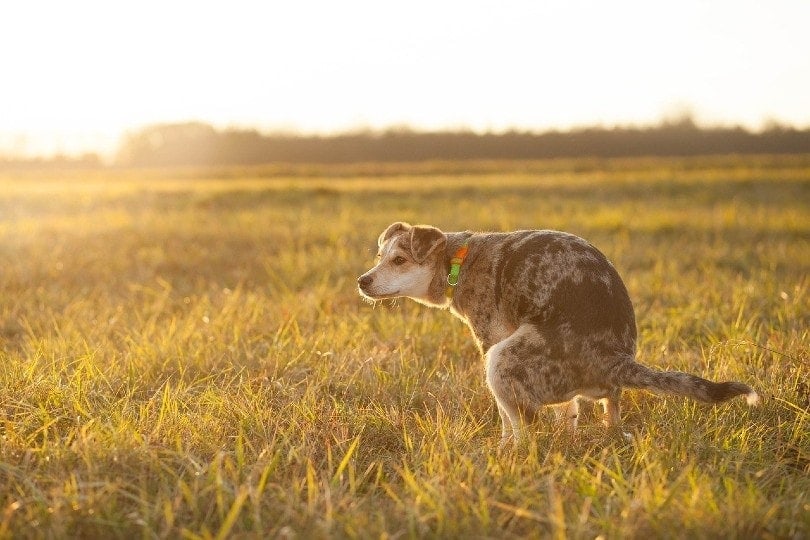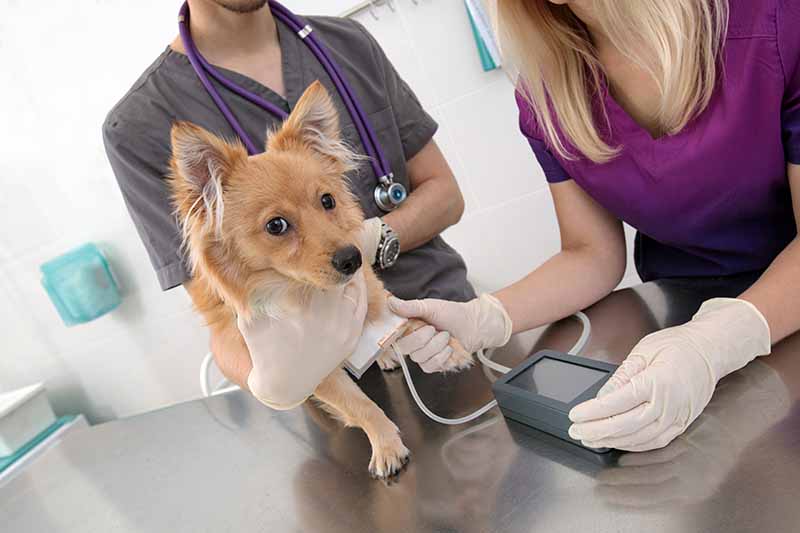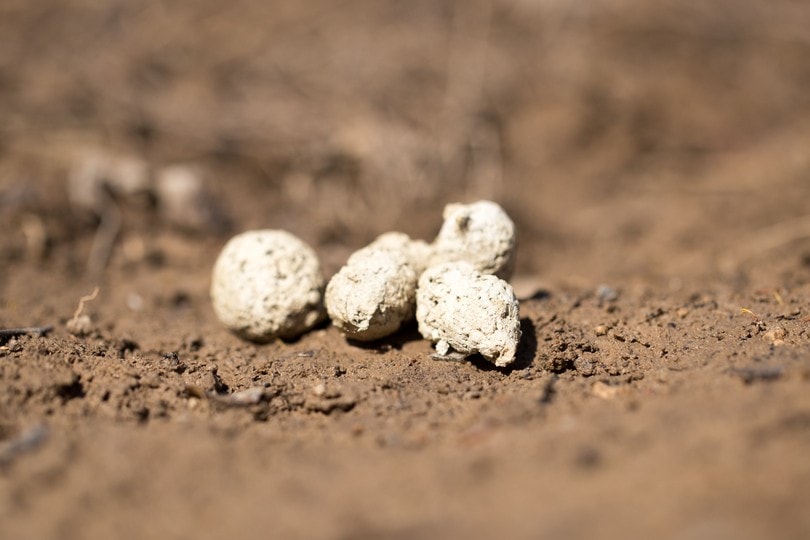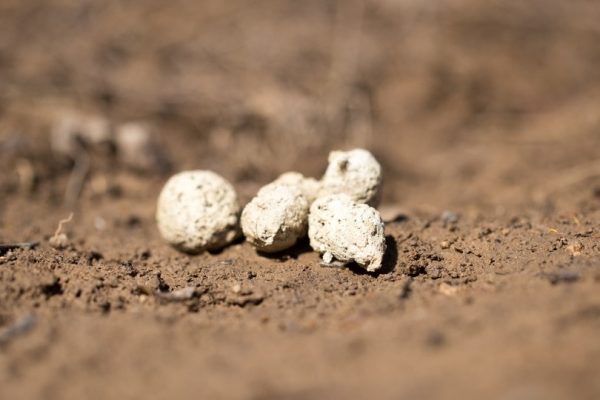Picking up poop is likely the least favorite moment in any dog parent’s day. Worse yet, finding that the poop is an unusual color can add to this already unpleasant task a great deal of worry.
As gross as it sounds, there’s no denying that keeping an eye on your dog’s poop is important, as it can be a good indicator of any health issues. In this post, we’re going to share the most common causes of white-colored dog poop and give you a heads-up on what may be causing it.
The 5 Possible Reasons Why Your Dogs Poop Is White
There could be any number of reasons for white-colored dog poop. Some are completely harmless, while others may suggest a health problem that needs veterinary attention.
1. The Weather
In some cases, white dog poop is nothing to worry about. If it is left out in the sun or humid conditions, the pigments in the poop can break down, causing a white mold to grow over it. If you find white dog poop and know that it has been outside for a few days, it may be a simple case of environmental conditions doing their work.
If, however, you can see that your dog’s poop is white immediately after excretion, this may signal a more serious problem.

2. A Diet High in Calcium
Sometimes, a high-calcium diet can be the cause of white poop. Dogs that eat a lot of bones or a raw meat diet are especially susceptible to this. An overload of calcium can produce white-colored, chalky poop and cause constipation and pebble-like, dry stools. You may also notice your dog straining to poop.
If your dog eats a raw diet or bones regularly and is often constipated, you may want to talk to your veterinarian about how to combat this. They may recommend some dietary changes.
3. Intestinal Worms
If your dog has intestinal worms, they may show up in their poop. This depends, however, on the type of worms your dog has. Hookworms and Whipworms, for example, are rarely visible, whereas tapeworm segments may show up as white, “rice-like” pieces around the dog’s anus or in their stools.
If your dog has intestinal worms, they may drag their butt along the floor in an attempt to relieve itching. In more serious cases, they may have diarrhea with blood or experience vomiting, weight loss, or bloating. Contact your vet if you think your dog may have intestinal worms. They will be able to provide the appropriate treatment.

4. Eating Something White
A dog’s curiosity may lead them to nibble at something they’re not supposed to. Some dogs may go for tissue, toilet paper, or paper towels, but it could be pretty much anything white. In most cases, these foreign objects will simply come out the next time your dog poops, but it’s best to be cautious.
Some objects may cause a foreign body obstruction, so they get stuck in the dog’s digestive tract. If you suspect your dog has eaten something that could cause this—especially if you don’t know what it is—ask your vet for advice to be safe.
5. Gastrointestinal Issues
A bit of mucus in the stool now and then isn’t always a cause for concern, but if your dog’s poop frequently contains mucus or is coated in it, they may have a gastrointestinal issue that needs to be looked into. Infections of the intestines, parasites, irritable bowel syndrome, and inflammatory bowel disease are all possible causes of mucus in the stool. Cancer of the gastrointestinal tract can also be the cause in some cases.
In addition to mucus in the stool, symptoms of gastrointestinal problems in dogs include vomiting, diarrhea (sometimes with blood), loss of appetite, and weight loss.

Final Thoughts
When your dog’s poop is an unusual color or texture—especially all of a sudden—it’s natural to be concerned. Though the cause is sometimes as simple as poop being left out in the sun too long, it’s always better to be safe rather than sorry.
If your dog is producing white-colored or white-flecked poop and you’re worried, have a chat with your vet to put your mind at ease.
- See also: 7 Korean Dog Breeds (with Pictures)
Featured Image Credit: schankz, Shutterstock











